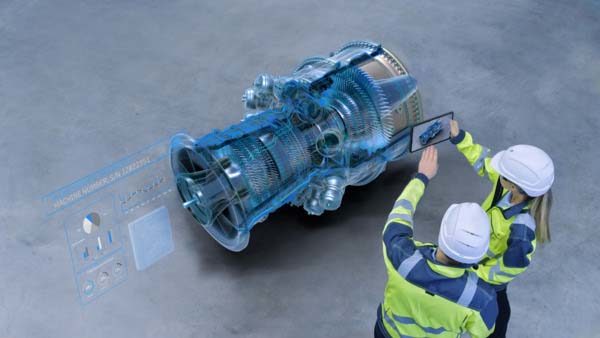Can you hear me now?
The answer is always yes at Toyota Material Handling’s Columbia, Indiana, plant, thanks to a new private 5G network.

Walk into one of today’s high-tech manufacturing plants, and you’re sure to see a host of productivity-enhancing tools, whether they’re robots, conveyors, or wearable scanners. But the latest efficiency-boosting tool at forklift manufacturer Toyota Material Handling’s Columbia, Indiana, production complex isn’t something you can see. In fact, it’s completely invisible.
That tool is a private 5G wireless data network that has replaced the plant’s previous on-site Wi-Fi solution. Designed and installed by the Swedish telecommunications company Ericsson and its channel partner, Step CG, the system has increased productivity, supported faster deliveries to customers, and boosted employee morale, Toyota says.
Toyota leaders also report that the decision to install Ericsson’s private 5G products and solutions, including the indoor-connectivity-focused Radio Dot System, has led to a better flow of information. Among other benefits, the integrated system has ensured adequate coverage across the facility, boosted network reliability and security, and extended public cellular coverage into the site to optimize worker communications, IoT-based predictive maintenance, fleet management, and telematics. Today, business-critical operations at the nearly 200,000-square-foot warehouse are run exclusively over the 5G private network, with no disruptions or connectivity loss reported since its operational launch in November 2023.
Speaking to the installation process, Daniel Schumacher, VP of information technology for Toyota Material Handling North America, said, “This partnership is a great example of a core Toyota principle—‘Genchi Genbutsu’—which roughly translates to ‘go and see with your own eyes.’ When we started discussions with Step, they voluntarily came to our campus and spent several days to truly understand our operations before recommending solutions.”
Toyota Material Handling says it plans to continue its Industry 4.0 transformation with private 5G by evaluating automation (including automated vehicles) across other operational facilities.
Related Articles
Copyright ©2024. All Rights ReservedDesign, CMS, Hosting & Web Development :: ePublishing